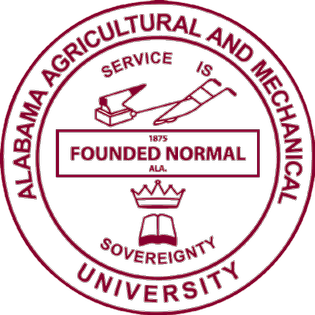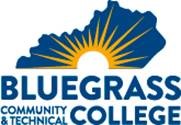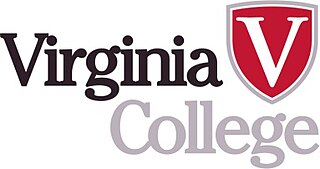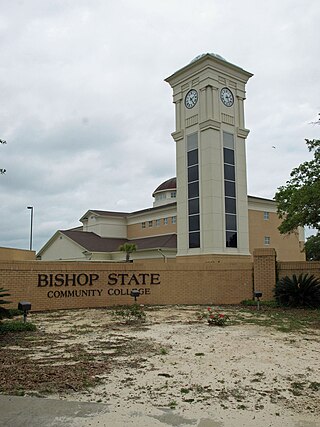Related Research Articles

Huntsville is the most populous city in the U.S. state of Alabama. It is the county seat of Madison County with portions extending into Limestone County and Morgan County. It is located in the Appalachian region of northern Alabama.

Hudson Valley Community College is a public community college in Troy, New York. It is part of the State University of New York (SUNY). Although about eighty percent of the students are from the Capital District, the remainder are from other parts of New York, other states and from some 30 countries around the world.

The University of Alabama in Huntsville (UAH) is a public research university in Huntsville, Alabama. The university is accredited by the Southern Association of Colleges and Schools and comprises eight colleges: arts, humanities & social sciences; business; education; engineering; honors; nursing; science; and graduate. The university's enrollment is approximately 10,000. It is part of the University of Alabama System and is classified among "R1: Doctoral Universities: Very High Research Activity".

Alabama Agricultural and Mechanical University is a public historically black land-grant university in Normal, Huntsville, Alabama. Founded in 1875, it took its present name in 1969. It was one of about 180 "normal schools" founded by state governments in the 19th century to train teachers for the rapidly growing public common schools. It was one of 23 established to train African Americans to teach in segregated schools. Some closed but most steadily expanded their role and became state colleges in the early 20th century and state universities in the late 20th century. AAMU is a member-school of the Thurgood Marshall College Fund and is accredited by the Southern Association of Colleges and Schools. Alabama Agricultural and Mechanical University Historic District, also known as Normal Hill College Historic District, has 28 buildings and four structures listed in the United States National Register of Historic Places.

Northern Virginia Community College is a public community college with six campuses and four centers in the Northern Virginia suburbs of Washington, D.C. Northern Virginia Community College is the third-largest multi-campus community college in the United States, and it is the largest educational institution in the Commonwealth of Virginia.
Lone Star College (LSC) is a public community college system serving the northern portions of the Greater Houston, Texas, area. In 2017 it enrolled about 95,000 students. The headquarters of the Lone Star College System are located in The Woodlands and in unincorporated Montgomery County, Texas.

Bluegrass Community and Technical College (BCTC) is a public community college in Lexington, Kentucky. It is one of sixteen two-year, open admission colleges of the Kentucky Community and Technical College System (KCTCS). It was formed from the consolidation of two separate institutions: Lexington Community College and Central Kentucky Technical College. Lexington Community College was the last remaining college in the University of Kentucky Community College System until a vote by the trustees transferred governance to KCTCS in 2004. Prior to 1984, the college was named Lexington Technical Institute. Central Kentucky Technical College was part of the Workforce Development Cabinet of the Kentucky State Government until the creation of KCTCS in 1997. KCTCS was formed in 1997 by the state legislature through House Bill 1 which combined the technical colleges of the Workforce Development Cabinet and the community colleges previously with the University of Kentucky. BCTC is accredited by the Southern Association of Colleges and Schools Commission on Colleges (SACSCOC).

Camden County College (CCC) is a public community college in Camden County, New Jersey. Camden County College has its main campus in the Blackwood section of Gloucester Township, with satellite locations in Camden, Cherry Hill and Sicklerville. The college offers Associate in Arts, Associate in Science, and Associate in Applied Science degree programs and certificate programs.

East Mississippi Community College (EMCC), formerly East Mississippi Junior College, is a public community college in Scooba, Mississippi. EMCC serves and is supported by Clay, Kemper, Lauderdale, Lowndes, Noxubee and Oktibbeha counties in east central Mississippi. The college has two principal campuses in Scooba and Mayhew, Mississippi and offers courses at five other locations. One of fifteen community colleges in Mississippi, EMCC is accredited by the Southern Association of Colleges and Schools Commission on Colleges (SACSCOC) to award the Associate of Applied Science degree and the Associate of Arts degree.

Ashland Community and Technical College (ACTC) is a public community college in Ashland, Kentucky. It is an open-admissions college and part of the Kentucky Community and Technical College System. It was founded in 1938 to allow students the opportunity to obtain associate degrees, certificates and diplomas as well as provide vocational and technical training. The courses offered range from Cosmetology, Culinary Arts, business, education, health-related courses, information technology and a range of industrial technology degrees among others.

Virginia College was a private for-profit college located primarily in the southeastern United States. It offered classes, certificates, diplomas, and degrees related to specific professions such as health sciences, information technology, business, office management, and criminal justice. It also offered online degree programs.
Gaston College is a public community college in Dallas, North Carolina. Serving Gaston County and Lincoln County, Gaston College enrolls over 5,000 students each term in curriculum programs and about 16,000 students in continuing education programs. It is part of the North Carolina Community College System and accredited by the Southern Association of Colleges and Schools to award associate degrees.

Midland College (MC) is a public community college in Midland, Texas. It was established as an independent junior college in 1972 and held its first classes on campus in 1975. Since that time, the campus has expanded to a 704,752-square-foot (65,473.6 m2) main campus on 224 acres (0.91 km2) in Midland. It also has numerous locations in other parts of Midland and in Fort Stockton, the Pecos County seat.

College of Western Idaho (CWI) is a public community college in Southwest Idaho with its primary campus locations in Boise and Nampa. CWI also offers classes at several community locations throughout the Treasure Valley. It is one of four comprehensive community colleges in Idaho and is governed by a five-member board of trustees elected at large by voters in Ada and Canyon counties.

Barstow Community College is a public community college in Barstow, California. It is an open-admission college serving more than 3,700 students in degree and certificate programs with approximately 120 faculty. It provides the first two years of college or university study as part of the California Community Colleges. The college's educational program includes lower-division course work, general education offerings, and vocational courses for transfer to baccalaureate degree institutions. The college offers occupational programs designed to prepare students for entry into the workforce. Service learning and self-enrichment classes are also offered to the community.

Bishop State Community College (BSCC) is a public, historically black community college with campuses and facilities throughout Mobile and Washington Counties in Alabama. The college was founded in Mobile, Alabama, in 1927, and is accredited by the Southern Association of Colleges and Schools Commission on Colleges. It offers more than 50 associate degree and certificate programs.

Gadsden State Community College is a public community college with campuses in Gadsden, Centre and Anniston, Alabama. The college was founded as a merger between Alabama Technical College (1925), Gadsden State Technical Institute (1960) and Gadsden State Junior College (1965). Gadsden State is accredited by the Southern Association of Colleges and Schools Commission on Colleges. It offers associate degree, certificate and non-credit courses thorough more than 70 programs. The college's campuses serve Calhoun, Cherokee, Cleburne, Etowah and St. Clair counties, as well as neighboring counties in Georgia.
Chattanooga State Community College is a public community college in Chattanooga, Tennessee. The college is a member of the Tennessee Board of Regents System and is accredited by the Southern Association of Colleges and Schools (SACS). Athletically, Chattanooga State is a member of Region VII of the NJCAA.
Community Care College is a private career college in Tulsa, Oklahoma. The college is the main campus of two branches, Clary Sage College and Oklahoma Technical College. Founded by entrepreneur and Tulsa Oklahoma native Teresa Knox in 1995 as Dental Directions: The School of Dental Assisting, the college eventually expanded its curriculum to other include career oriented programs. The colleges are licensed by the Oklahoma Board of Private Vocational Schools and accredited by the Accrediting Commission of Career Schools and Colleges (ACCSC).
References
- 1 2 "New president announced for Drake State". WAFF 48. Retrieved 10 February 2022.
- 1 2 3 4 "College Navigator - J. F. Drake State Community and Technical College". National Center for Education Statistics. Retrieved 8 February 2022.
- 1 2 3 4 5 6 "J. F. Drake State Technical College". Encyclopedia of Alabama. Retrieved 7 February 2022.
- ↑ Smith, Dylan (5 August 2021). "NASA awards Drake State nearly $1.2M for STEM workforce development and outreach". Yellowhammer News. Retrieved 8 February 2022.
- ↑ Norman, Nixon (20 October 2021). "Drake State will provide more STEM opportunities for students". WZDX Fox54. Retrieved 8 February 2022.
- ↑ Jackson, Cynthia L.; Nunn, Eleanor F. (2003). Historically Black Colleges and Universities: A Reference Handbook. ABC-CLIO. p. 20. ISBN 978-1-85109-422-6 . Retrieved 11 February 2022.
- 1 2 3 4 5 6 7 8 9 10 11 "Report on the J. F. Drake State Community and Technical College Huntsville, Alabama October 1, 2017 through September 30, 2018". Alabama Department of Examiners of Public Accounts. Retrieved 10 February 2022.
- ↑ "HBCU: J.F. Drake State Technical College". NewsOne. 25 August 2012. Retrieved 11 February 2022.
- ↑ "Helen T. McAlpine". White House Initiative on Advancing Educational Equity, Excellence, and Economic Opportunity through Historically Black Colleges and Universities. Retrieved 10 February 2022.
- 1 2 Lawson, Brian (7 May 2016). "A look at troubles that led to forced retirement of Drake State president". WHNT News 19. Retrieved 10 February 2022.
- ↑ "Drake State President Placed on Administrative Leave". Diverse: Issues In Higher Education. 24 November 2015. Retrieved 10 February 2022.
- ↑ "Kemba Chambers Is the New Leader of Drake State Community and Technical College". The Journal of Blacks in Higher Education. 30 November 2015. Retrieved 10 February 2022.
- ↑ "The Alabama Community College System announces a new interim president for Drake State". WHNT News 19. 16 May 2017. Retrieved 10 February 2022.
- ↑ "DRAKE STATE Community and Technical College | Campus Tours | J. F. Drake State Technical Trade School". drakestate.edu. Archived from the original on 2016-06-20.
- ↑ "J. F. Drake State Community and Technical College". Encyclopedia of Alabama. Archived from the original on November 5, 2011. Retrieved July 17, 2011.
- ↑ "Academic Programs". Drake State Community and Technical College. Retrieved 8 February 2022.
- ↑ "Instructional Calendar". Drake State Community and Technical College. Retrieved 8 February 2022.
- 1 2 "J.F. Drake State Community and Technical College Catalog 2020-2021" (PDF). Retrieved 10 February 2022.
- ↑ "Dual Enrollment". Drake State Community and Technical College. Retrieved 8 February 2022.
- ↑ "ADECA Workforce Development Division | Drake State Community and Technical College". Drake State Community and Technical College. Retrieved 10 February 2022.
- ↑ "Graduation & Transfer". Drake State Community and Technical College.
- ↑ "U.S. Census Bureau QuickFacts: United States". U.S. Census Bureau. Retrieved 24 August 2021.
- ↑ "Student Organizations". Drake State Community and Technical College. Retrieved 8 February 2022.